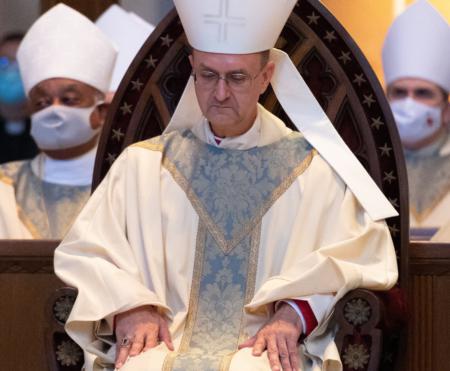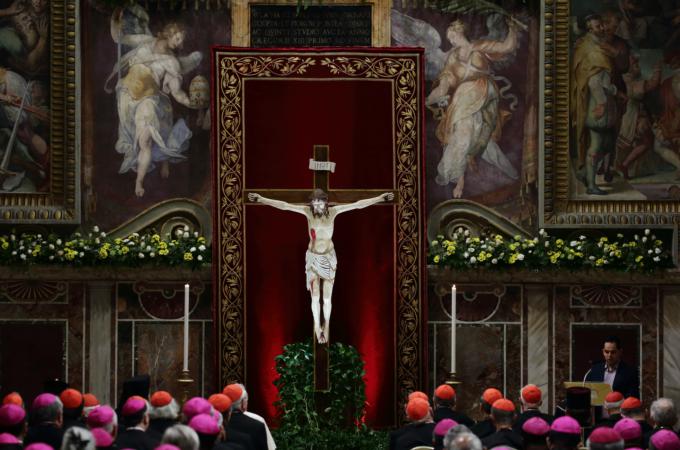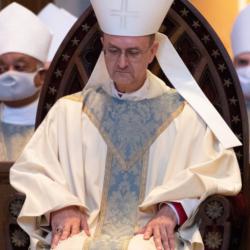Penitential rite at Mass
Q. Every Mass I attend begins with a penitential rite, which I take to be the forgiveness of sins for those who are there worshipping. And then, just before Communion, we say, "Lord, I am not worthy that you should enter under my roof, but only say the word and my soul shall be healed." Why, then, does the Church require Catholics to go to confession? (Russellville, Arkansas)
A. It is true, as you indicate, that several times throughout the Mass we indicate our unworthiness to participate in such a sacred act. However, none of these expressions of sinfulness and sorrow is equivalent to sacramental absolution, and they do not dispense us from the obligation of confessing grave sins before receiving holy Communion.
The Church's Code of Canon Law states clearly that "a member of the Christian faithful is obliged to confess in kind and number all grave sins committed after baptism and not yet remitted directly through the keys of the Church nor acknowledged in individual confession" (Canon 988.1).
Grave, or "mortal," sins are those involving serious matter, committed with knowledge of their gravity and the deliberate consent of the will. The General Instruction of the Roman Missal, the Church's official "guidebook" on liturgy, notes, "the priest calls upon the whole community to take part in the penitential act, which, after a brief pause for silence, it does by means of a formula of general confession. The rite concludes with the priest's absolution, which, however, lacks the efficacy of the sacrament of penance" (No. 51).
The penitential rite (as well as the reception of Communion and other acts of prayer and devotion) can, though, forgive venial sins. Strictly speaking, one is obliged to go to the sacrament of penance only for serious sins -- although it is certainly a good idea to confess regularly even for lesser sins and imperfections. In 2013, Pope Francis revealed that he himself goes to confession every two weeks and considers it the best path to spiritual healing and health.
Q. I have a friend who received baptism, confirmation, and first Eucharist as a child in the Armenian Church. For the past 25 years, though, he has attended a Catholic church weekly and receives the sacraments of Eucharist and reconciliation. He supports the Catholic Church both financially and with time and talent.
They were told by a nun that this is OK, but recently they heard something on a Catholic radio channel that is making them doubt that. This friend is more Catholic in his actions than most of my friends who were born Catholic. Is there any advice you can give that might relieve his anxiety? (Largo, Florida)
A. I should tell you first that there is a slight possibility that your friend is already a Catholic. The Armenian Catholic Church is one of about two dozen Eastern Catholic churches that are in full communion with Rome and accept the doctrine of papal primacy. More likely, though, he belongs to the Armenian Orthodox Church. (While there are about 35,000 Armenian Catholics in the United States, Armenian Orthodox number nearly half a million.)
So what would your friend need to do to become a Catholic? He would need only to make a profession of faith, a declaration that he believes all that the Catholic Church teaches. Most significantly, he would not need to be re-baptized or re-confirmed, since those Orthodox sacraments he has already received are recognized as valid by the Catholic Church. (Likewise, his reception of holy Communion as an Orthodox Christian has been a validly consecrated Eucharist.)
- Father Kenneth Doyle is a columnist for Catholic News Service



















